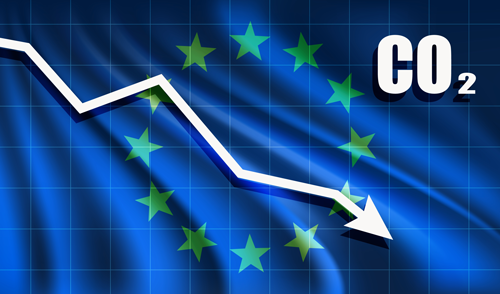Facts any company should know as 2024 commences

In 2024, companies are going to have more responsibility in driving green transition than ever before. This is good news because responsibility brings opportunities and fosters a fair market. The green transition is estimated to have a total export potential of up to 100 billion euros in Finland’s main export sectors. It is essential that companies know their role in sustainability issues. In this article, we have compiled the most important facts on sustainability that will affect business operations in 2024.
Particularly large companies should be aware of the EU directives we present in this article. Moreover, the EU taxonomy is a focus matter – read more in our previous article. Although the taxonomy system mainly applies to large companies, the effects trickle down to smaller companies as a result of their part in value chains.
Companies are also affected by the results of the recent UN COP28 climate summit. The countries agreed that fossil fuels should be phased out in order to achieve net zero (equal amount of emissions and carbon sinks) worldwide by 2050.
The decisions from the Climate Change Conference also outlined that the use of renewable energy should be tripled and energy efficiency doubled by 2030. These decisions will greatly impact the business world: the goal of increasing production volumes of renewable energy alone creates business opportunities and lowers the costs of green energy.
Corporate Sustainability Due Diligence Directive means corporate sustainability is no longer voluntary

“Greenwashing directives” intervene in baseless environmental claims
The EU has decided to intervene in the wild market of sustainability claims and greenwashing. The EU is amending two different directives to help avoid misleading consumers and improve consumer protection in the green transition. The directives will prohibit the use of baseless environmental claims, which means that a claim can only be used if it can be proven to be true.
There will be a significant change in the compensation industry: the EU forbids calling a product or service carbon neutral if carbon neutrality has been achieved solely by compensating emissions. These changes to consumer protection will likely come into force in 2026, and they already affect company strategies.
This news has caused two types of reactions in the compensation industry: On the one hand, people are concerned that regulating the use of the term “carbon neutral” removes incentives from companies to invest in environmental work. This, in turn, pointlessly inhibits the emission compensation market, which is just getting up to speed. On the other hand, the change encourages companies to focus on transparent domestic services and the genuine implementation of sustainability measures, instead of spending big on foreign projects for the sake of an official certificate of carbon neutrality.
Companies are to report on sustainability
Sustainability reporting can be embraced as a similar obligation as bookkeeping: strict frameworks must be in place based on which companies report on their activities. The EU’s new Corporate Sustainability Reporting Directive (CSRD) will enter into force this year. Its goal is to make corporate sustainability reporting more transparent and consistent.
The directive takes effect in stages for companies of different sizes: as of this year, reporting must be done by listed companies employing more than 500 people. Those companies were previously covered by the Non-Financial Reporting Directive (NFRD). In 2025, the obligation to do reporting will apply in addition to companies that meet at least two of the following three criteria: net turnover of 40 million euros, balance sheet of 20 million euros, or number of employees +250.
Even if the CSRD directive does not yet affect your company, this is a good time to start canvassing your company’s sustainability actions, goals, requirements and schedule. We help your company map out how the planting of Finnish forests can play a role in your sustainability strategy.
Contact Us!
Do you want to find out how your company can offset its carbon dioxide emissions and participate in our carbon sink project? Send us a message and we'll get back to you as soon as possible or call Timo on +358 40 485 6607.
Company
Forest Gump Oy
Nousiaistentie 4 LT
00280 Helsinki
FINLAND
Invoicing
E-invoicing address: 003732031469
Operator:
Apix Messaging Oy
Operator ID: 003723327487
Terms and Conditions
Privacy Notice
